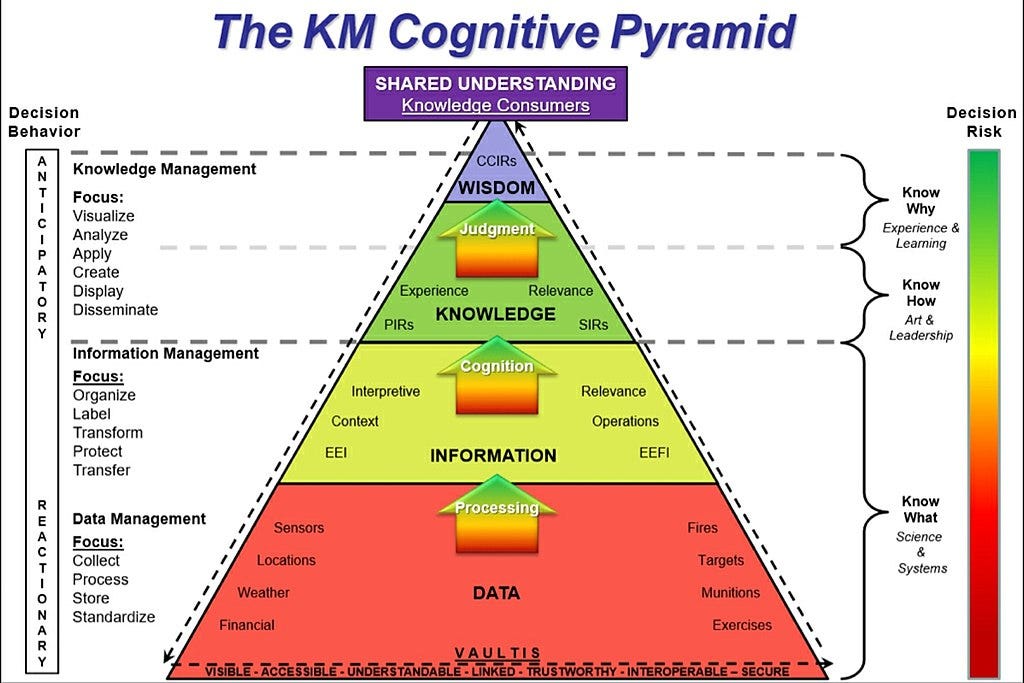Actionable Insights are the Difference: How to Actually Create Astounding Analytics-powered Advantage
As an industry, we've been talking about how important data is for a long time now. But for most organizations, that has simply become code for: collect lots of data and produce lots of pretty dashboards and reports. However, the real goal of your data strategy is to use it to take meaningful and strategic action — what we refer to as actionable insights. But what does that term really mean, and why is it so important that you get it right?
Too Much Data is Worse Than Not Enough of It
In today’s experience-driven economy, there is no greater sin than not having enough data. Data is the fuel that powers the modern digital enterprise. It enables high levels of efficiency and optimization by eliminating guesswork and traditional approaches to decision-making. And it powers your ability to create highly personal and customized experiences for your customers, employees, and partners.
So, we need data — and lots of it.
But within that statement is a dilemma. Merely capturing data is not enough. In fact, there are two reasons collecting data without a cohesive strategy can actually be worse than not collecting enough of it.
First, having a massive amount of data without both a strategy and the ability to manage and glean insights from it means that you'll be spending significant resources on all of the data mechanics — without receiving any of the benefits.
Second — and much worse — you will be laboring under the belief that you're doing the right thing and will have achieved something by having all of this data. But unless you are able to unleash that data, you will be setting yourself up for poor decisions and bad outcomes.
This dilemma is part of what I learned during the interviews I conducted for our video Unleashing Data, the second episode of the Unleashing Transformation series, presented by Zoho.
In it, Zoho's data analytics evangelist, LSP, said that the most important thing that enterprise leaders need to do is to focus on what he calls actionable insights — but what does that really mean?
(Check out the whole video below. It's totally worth 6 minutes of your time!)
https://youtu.be/AhcngOQi5sI
What are Actionable Insights?
Like many buzzwords, actionable insights seems logical. It's something you can make sense of on the surface — but it starts to break down as you really get into it.
As it sounds, an actionable insight is something that transforms raw data into something that has these two attributes:
It's an insight — it provides you a perspective or understanding that you didn't have before; and
It's actionable — you can use this newfound perspective or understanding to take some action, one that will presumably lead to a positive outcome for your organization.
So far, so good.
But what does it take to transform raw data into this type of actionable insight?
To start with, it's helpful to remember (or learn about) the DIKW Pyramid. If you're not familiar with it, it's an acronym (Data, Information, Knowledge, Wisdom) that represents an evolution and refinement process that takes raw data and eventually turns it into wisdom.

While there is some debate over this idea, I believe that wisdom can be taken as synonymous with an insight (some consider an insight as a step between knowledge and wisdom). In either case, the process of going from data to insight/wisdom is a refinement process that takes a lot of raw material.
And that's where this process goes wrong for most organizations.
Why You Need a Hot Take on Your BI and Analytics Tools to Create Actionable Insights
Based on this need for lots of data, organizations have invested significant resources in various forms of instrumentation and data extraction capabilities. Needing a place to store all of this data, they have then invested in data warehouses, data lakes, lake houses and whatever term the data industry dreams up next.
To be sure, being able to cost effectively store and catalog all that data is a significant issue — and one that can quickly overwhelm an enterprise's organizational and financial means.
But it's still just the first step in the process.
The goal — the absolute need — is to refine all of that data through the DIKW process to transform it from mere data into something that is genuinely meaningful for the organization. The challenge is that many of the tools attempting to address these issues are only focused on the (undeniably difficult) building blocks of ingesting, cataloging, and enabling a presentation layer for massive amounts of data at scale. Essentially, most of the data industry is focused exclusively on the data-to-information (and maybe a little bit of knowledge) refinement process.
It's understandable.
The final stages of the refinement process — what is necessary to get to actionable insights — requires more than generic approaches to data management.
The final stages of the transformation of data into insights require context. This context comes in two forms:
Context about the relationships between the data and the organization's operating and business model so you can understand the story the data is telling, and
Context in the form of the questions the organization is attempting to answer.
Therefore, getting through this final step requires that you both leverage tools designed to help you provide this context, and that you recognize that it's about more than just the tooling.
Getting to Actionable Insights Requires Tooling AND Cultural Shift
One of the things I learned during my conversations with the enterprise leaders I interviewed for the Unleashing Data episode is that while the right tooling is essential, it's also not enough.
To realize this full transition, enterprise leaders need to drive a cultural shift within their organizations. This cultural shift involves changing their teams' relationship to data collection. They need to understand its importance and the context that will help it have meaning.
"Those who figure out how to leverage data are the ones who are winning and will continue to win. Data to insights. Insights to action. It's all about actionable insights."
Chandrashekar LSP, Evangelist, Zoho Analytics
"It's no longer about transactional systems and productivity. It's about what can these tools help you do better," said Zoho's LSP in the episode. "There's so much accumulation of data...that it's going to open up insights that you never knew about your business."
In addition, it requires a shift in how people leverage that data to go beyond pretty graphs and instead focus on how you can transform that data into insights and then take specific, targeted action based on those insights.
"Every organization has a lot of data and they know it's going to give them insights," LSP continued. "But the biggest challenge has been data strategies. Those who figure out how to leverage data are the ones who are winning and will continue to win. Data to insights. Insights to action. It's all about actionable insights."
Note: Zoho is a client of The Digital Experience Report, but had no input or control over this analysis.




